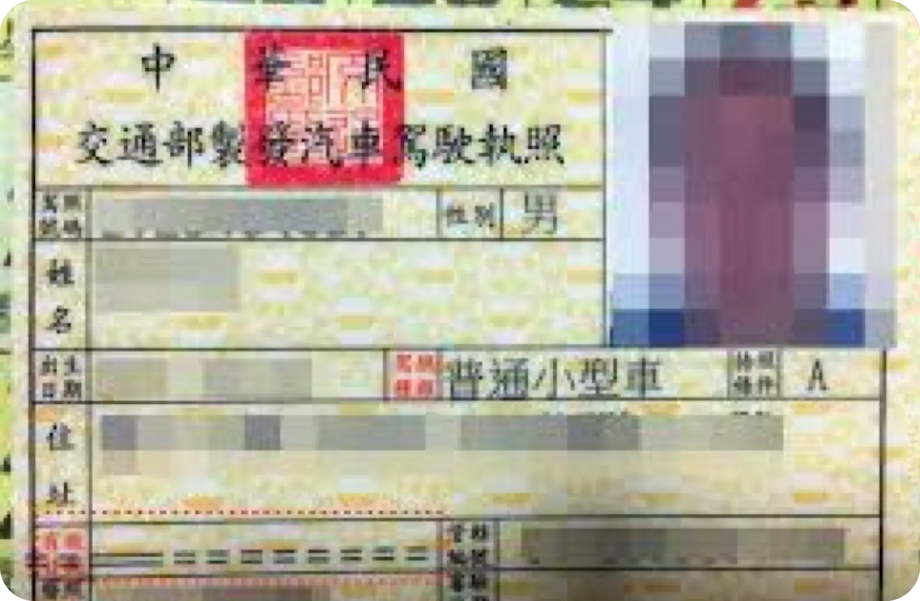Tokyo arrests put focus on fake driver licenses in Japan
Two recent arrests in Tokyo have cast a sharp light on how forged foreign driver licenses can be used to skirt Japan’s driving rules for visitors. Police detained two Chinese nationals on suspicion of using counterfeit Taiwanese driver licenses to obtain official Japanese translations, a step that allowed at least one of them to rent and drive a car while visiting the country. Investigators say the pair purchased the bogus documents through an online shopping site, paying about 160,000 yen each, then submitted applications for Japanese translations last November. Authorities suspect a wider operation that marketed ready made documents to tourists seeking a quick path to driving in Japan.
- Tokyo arrests put focus on fake driver licenses in Japan
- What police say happened
- The rules for visitors who want to drive
- How the alleged forgery scheme exploited the translation process
- Rule changes beginning in October
- What this means for rental companies and road safety
- Why the policy differs by country or region
- How to avoid scams and drive legally as a visitor
- A growing market for fake documents and the law enforcement response
- What to Know
Police believe the applications targeted a known shortcut in Japan’s system. Visitors from Taiwan, as well as several European countries, can drive in Japan if they carry their valid home license with an authorized Japanese translation. Visitors from China face a different process. They must pass both a written test and a road test at a driver license center to convert a Chinese license into a Japanese one. Starting in October, proof of registered residence in Japan will also be required for that conversion process. The arrests, which police say are the first in cases involving illegal applications using fake Taiwanese licenses, have pushed this policy gap into the spotlight.
The two suspects deny knowing the documents were counterfeit. Investigators say they are also seeking a third Chinese national believed to have handled paperwork and advertising on the online marketplace, with plans to seek an international wanted notice. Police say they have identified at least eight cases in which forged Taiwanese licenses were used in applications, suggesting a coordinated effort that goes beyond isolated acts by individual travelers.
What police say happened
Investigators in Tokyo say the suspects, men and women in their thirties and forties, used Taiwanese licenses that were not genuine to apply for official translations in November of last year. One of them is believed to have used the translation to drive a rental car without a valid license. The pair reportedly found the documents for sale on an online shopping site that advertised licenses and translations as a bundled package aimed at visitors who wanted to drive in Japan.
Police have also identified a 37 year old Chinese national suspected of placing advertisements and organizing the sales. Authorities plan to seek cooperation from international partners to locate the individual and place the person on an international wanted list. In a related thread of the investigation, a man in his twenties living in Saitama Prefecture told police he acted as an agent to submit applications on behalf of buyers. He said he made a small fee per application and used the system to make extra money. Police say Japan’s online application system for translations can be accessed by someone inside the country on behalf of an applicant, which created an opening for proxies to play a role.
The rules for visitors who want to drive
Japan offers different routes for foreign visitors who plan to drive. The path depends on the country or region that issued the original license and whether that jurisdiction has a system that Japan recognizes as comparable.
Travelers who hold licenses from Taiwan or from selected European countries can drive in Japan if they carry their valid home license alongside an official Japanese translation prepared by a designated organization. The countries commonly cited in this category are Taiwan, Switzerland, Germany, France, Belgium, and Monaco. Drivers must keep both the original license and the translation with them when they drive.
Visitors from many other countries use an International Driving Permit together with their home license. The permit must be issued under a treaty that Japan recognizes and it must be obtained before arrival. Rental car companies typically ask to see the passport, the home license, and the permit before handing over keys. Requirements vary by company and prefecture, and the permit is valid only for a limited period after entry.
Visitors from China fall into a different category. Japan does not recognize the Chinese license for driving by tourists through the translation route or the standard International Driving Permit route. A person who holds a Chinese license and wants to drive in Japan needs to convert that license to a Japanese one. That means going to a driver license center for a knowledge test and a road test. Police say that starting in October, applicants will need to show proof of a registered residence in Japan as part of the conversion process. The change is meant to confirm that the applicant is not a short stay visitor and to reduce abuse by people who come only to drive temporarily.
How the alleged forgery scheme exploited the translation process
The translation step has become a critical document for visitors whose licenses fall within the recognized category. In many cases, the translation is prepared by the Japan Automobile Federation or by the Foreign Ministry. Applicants can submit requests online, and the translation can be obtained by a proxy. Rental car agencies and police on the road rely on the translation to understand the license. The translation states the categories of vehicles the person may drive and the validity of the license. It is not, by itself, a certificate that the underlying license is authentic.
Investigators say the group under scrutiny marketed this gap. They advertised a set that included a forged Taiwanese license and a translation application service for a flat price of about 160,000 yen. Because online application systems can be handled by someone in Japan, an agent could submit on behalf of a tourist before or during a trip. When the translation and the counterfeit license are presented together, they can appear legitimate to a rental counter agent who may not have tools to verify authenticity on the spot. Police say they have already confirmed several cases that followed this pattern.
Authorities believe the business targeted travelers who wanted to drive during short visits without taking tests or learning the local rules. The suspected ringleader stands accused of placing advertisements to reach potential buyers and handling paperwork for them. Police say their inquiry is ongoing and they anticipate more cases to surface as they analyze applications and rental transactions from the same period.
Rule changes beginning in October
Japan’s National Police Agency is implementing tighter controls on foreign license conversions beginning in October. Police say tourists without a resident record will be excluded from eligibility for conversion. The knowledge test will expand from 10 questions to 50 questions, and applicants will need to score at least 90 percent to pass. The move responds to criticism that the previous test was too short and that temporary addresses, such as hotel stays, were being used in applications.
The aim is to make the conversion route match its intended purpose, which is to establish that a person has the skills and knowledge to drive safely in Japan and that the person has a sufficient connection to the country to be held accountable for compliance. Authorities expect the revised process to reduce the incentive to misuse translation services or to buy counterfeit documents online.
What this means for rental companies and road safety
Japan’s rental car firms often serve visitors who are new to the country’s traffic laws, road signs, and left side driving. Many agencies accept an official translation with the original license or an International Driving Permit, depending on the traveler’s country of origin. Staff at counters are not document examiners. A polished counterfeit coupled with an authentic translation can be difficult to spot in the limited time a clerk has to process a booking. The case in Tokyo highlights the pressure on front line staff to verify credentials and on companies to update checks.
Driving without a valid license exposes the driver to criminal penalties. It also creates insurance risks. If a driver did not have a valid license, coverage that might otherwise protect against claims can be voided. That leaves victims and companies in a difficult position after an accident. The updated rules aim to keep unqualified drivers off the road and to create clearer liability for those who break the law.
Local police often run traffic safety campaigns in tourist hot spots, reminding visitors about speed limits, alcohol rules, and the meaning of key road signs. Those messages work only when the person at the wheel is properly licensed. The Tokyo investigation has brought attention to how document fraud can bypass those safeguards, at least temporarily, and to how agencies and authorities might tighten checks, for example by confirming that translations match valid licenses and by looking for patterns in applications.
Why the policy differs by country or region
Japan’s approach to foreign driver credentials rests on reciprocal recognition, treaty participation, and the structure of the issuing country’s licensing system. Some jurisdictions maintain testing and training standards that Japan views as comparable. In those cases, a simple translation of the license is enough to allow a visitor to drive for a limited period. Other jurisdictions issue licenses under frameworks that Japan does not recognize for short term driving by tourists. Those drivers must convert their license, a process that confirms their skills under Japanese rules.
Taiwan is in the group recognized for the translation route. Several European countries are also in that group. Many travelers from countries that issue International Driving Permits under a treaty recognized by Japan can use the permit and drive for a short time while visiting. China is outside those categories in Japan, which is why the conversion route is the only legal path for a person with a Chinese license who wants to drive in the country. The difference is administrative, not personal. It reflects how the systems align and which documents Japan accepts in the interest of traffic safety.
How to avoid scams and drive legally as a visitor
Travelers who plan to drive in Japan can avoid legal trouble by following a few simple steps. The most important point is to use only genuine documents. Buying any driver license online is a crime and can lead to arrest, fines, and deportation.
- Confirm your eligibility before you travel. Check whether your home license allows the translation route, the International Driving Permit route, or no tourist driving at all.
- Never purchase a driver license online. A real license is issued only by the authority in your home country or region.
- If your country is in the translation category, apply for the translation through an official channel. Carry your original license and the translation when you drive.
- If your country relies on the International Driving Permit, obtain the permit at home before traveling and carry it with your original license and passport.
- If you hold a Chinese license and need to drive in Japan for work or long term living, plan for the conversion process at a driver license center. The process includes a knowledge test and a road test, and from October it requires registered residence.
- Book with rental companies that clearly explain what documents they require. Ask questions in advance if you are unsure about eligibility.
- If anything about a document offer looks suspicious, do not proceed. When in doubt, rely on public transport or hire a driver.
A growing market for fake documents and the law enforcement response
Online marketplaces have given fraudsters new ways to reach customers across borders. Sellers can post offers that appear professional, process payments, and deliver counterfeit items that look convincing. In the Tokyo case, police say the sales pitch promised that a Taiwanese license would let the buyer drive in Japan. The offer reportedly included the translation application service to make the package seem comprehensive. The price, about 160,000 yen, was low enough to attract tourists who might consider it cheaper than taking lessons or booking tours without driving.
Investigators are trying to map the supply chain. The suspected organizer who placed advertisements and handled paperwork is believed to be outside Japan. Authorities plan to seek international cooperation, including an international wanted notice, to locate and question the individual. The case illustrates how cross border document fraud often requires cross border enforcement. It also shows why translation services, which exist to help legitimate visitors, can become targets when they are disconnected from any check of authenticity. The planned tightening of conversion rules and closer scrutiny of applications may make these schemes harder to execute.
What to Know
- Tokyo police arrested two Chinese visitors suspected of using fake Taiwanese driver licenses to obtain Japanese translations, a step used to rent and drive cars.
- Police say these are the first arrests for illegal applications using forged Taiwanese licenses and that at least eight cases have been identified so far.
- Investigators are seeking a third Chinese national and plan to request an international wanted notice in connection with the alleged operation.
- The package sold online reportedly cost around 160,000 yen and included both a forged license and help with the translation application.
- Japan allows visitors from Taiwan and several European countries to drive with their valid home license and an official Japanese translation.
- Travelers from China must convert their license to a Japanese one after passing knowledge and road tests at a license center.
- From October, conversion applicants must have a registered residence in Japan, and the knowledge test will expand to 50 questions with a 90 percent passing score.
- Using a fake license is a criminal offense and can void insurance coverage if an accident occurs.












